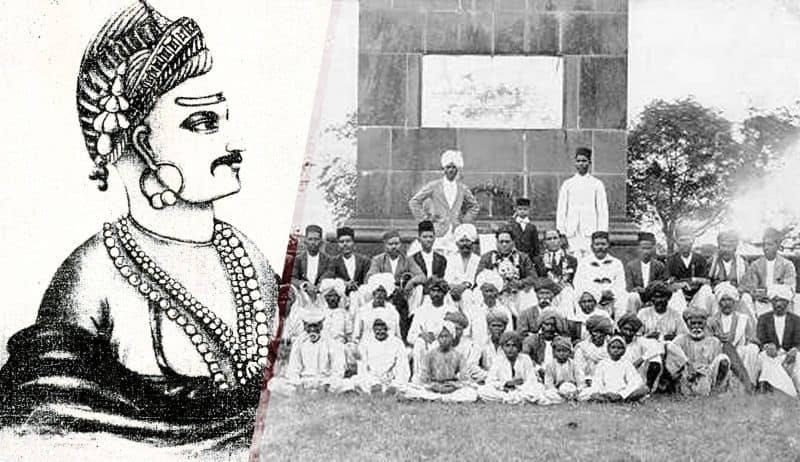The event to mark the 200th anniversary of the Bhima Koregaon battle in Pune district, in which the British Army comprising dalits had defeated upper-caste Peshwas, was marred by incidents of stone pelting and vandalism.
Victory of Dalits over Brahmin Peshwas
The Battle of Bhima Koregaon was fought two hundred years ago on January 1, 1818 where a few hundred Dalit Mahar soldiers of the East India Company, defeated the massive Peshwa army, led by Peshwa Bajirao II, in Koregaon.
The British army, which had a large contingent of dalit Mahars in the battle came to be seen as a victory of the Mahars against the injustices perpetuated by the Brahminical Peshwas and a victory of oppressed classes over the upper-caste establishment of those times.
A Peshwa was the equivalent of a modern Prime Minister in the Maratha Empire. Originally, the Peshwas served as subordinates to the Chhatrapati (the Maratha king), but later, they became the de facto leaders of the Marathas.
Battle for self-esteem
The Mahars were considered untouchable in the contemporary caste-based society. The Peshwas, who were high-caste Brahmins, were notorious for their mistreatment and persecution of the untouchables.
There are several stories told even today to recall the Mahars were mistreated. When Mahars entered towns, they were made to tie brooms behind their backs to sweep up the dust of their footprints and to tie pots in front on their necks to collect their spittle. It was also a criminal offence to hide one’s caste.
The British forces came to know about all the injustices being done to Mahar community. They began to incite the Mahars against Peshwa atrocities and asked them to join against a common enemy.
However, when the English were approaching, the patriotic Mahars did not wanted to fight against their own people offered their services to Peshwa Bajirao II. The Mahar leader explained about the British plan fight against Peshwas with the help of Mahar fighters.
In return, Peshwa Bajirao II insulted the Mahar community and rejected their offer completely. It was only after rejection the Mahars switched their loyalty to the British instead.
Battle of Koregaon
On New Year’s Day in 1818, about 500 soldiers of the East India Company consisting mostly of Mahar soldiers led by Colonel FF Staunton waded across the Bhima river and, at Bhima Koregaon, routed a superior force of 28,000 well-equipped soldiers of the Peshwa.
The Peshwa force encamped nearby Phulgaon, dispatched 2,000 of his soldiers to attack the Company troops, composed of the Mahar soldiers in majority and a few others, not just successfully defended themselves against the attack, but mercilessly routed the Peshwa army, ending their exploitative and oppressive rule (Pehswai).
Peshwai or the rule of Brahmin Peshwas had intensified along with its infamous debauchery the caste oppression of the Dalits. The Peshwa withdrew at night fearing the arrival of a larger British force.
After the victory, the Company commissioned a victory obelisk in Koregaon to commemorate its fallen soldiers. 22 of the 49 names of the slain soldiers on the pillar are that of Mahar caste.
Dr. Ambedkar said “this martyrdom of the Mahar soldiers was construed as their martyrdom in the cause of liberation of their castemen from the Peshwa’s oppressive rule” while visiting the obelisk on 1 January 1927 for the first time and kept visiting later.
Bury the Neo-Peshwas
The Dalits wanted to observe the second century anniversary of the day with a new slogan to “bury the new Peshawai” that was resurging in the form of a Hindutva wave.
Assembled for Shaniwarwada ‘Elgar Parishad’, the dalit leaders pledged to fight against neo fascism will be intensified in the coming days and a new beginning in the long drawn battle against casteism with slogan “Peshwai Murdabad, Lokshahi Zindabad”.
Radhika Vemula who came to attend Elgar Parishad, said that the new Peshwai had come in the form of BJP-RSS rule in the country which was responsible for the death of her son. She further appealed to the masses to continue their street agitation rather than remaining confined to the cozy rooms of their houses, failing which they will not get their rights. Vemula also advised the gathering to formulate to national strategy to fight fascism and casteism.
Video courtesy: Scroll.in

